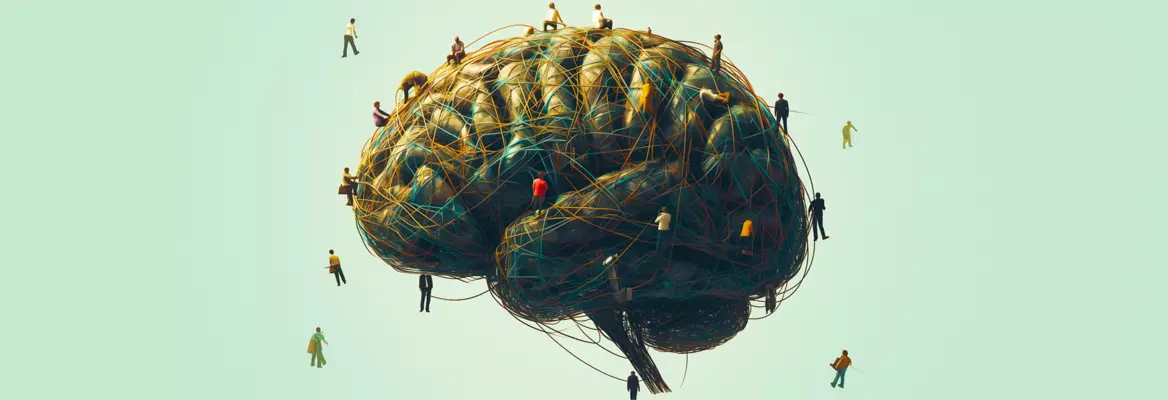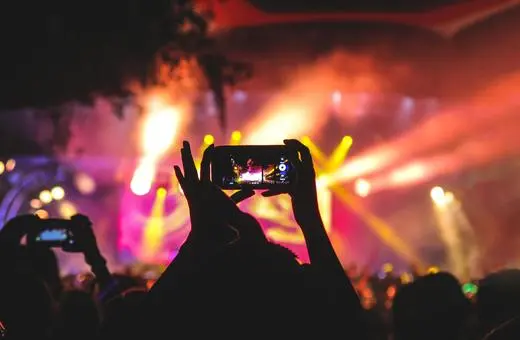The psychoanalyst Carl Jung created, or discovered, the notion of the collective unconscious almost a century ago. The idea is that humanity has a kind of shared, hive mind. Within the collective unconscious live archetypes (like the archetype of the hero, or the great mother) and myths (like religious myths or things like ‘the myth of progress’) amongst other shared unconscious material. Now, in the modern world, what was once a collective unconscious, the internet is making conscious. Writes Sharif Abdunnur.
In the seemingly boundless digital cosmos, every click and keystroke tells a story, contributing to an ever-expanding narrative that is the essence of our collective consciousness. This virtual environment, an intricate mosaic of human interaction, serves as a living testament to Carl Jung's prescient vision of the collective unconscious — a shared repository of archetypes and experiences that lie beneath the surface of our individual awareness.
As we navigate the depths of this digital sea, it becomes increasingly apparent that we are not merely spectators in a passive journey through cyberspace; we are active participants in a profound transformation of consciousness. The internet, with its instantaneous connectivity, stands as the most tangible embodiment of Jung's collective unconscious that humanity has ever known. It is in this expansive network that our personal experiences converge with the universal, the esoteric is made tangible, and the once invisible threads that weave our collective psyche become visible
___
The collective unconscious, once an abstract psychological concept, has found a palpable form in the digital narratives of the 21st century.
___
Jung’s Collective Unconscious: The Tapestry of Shared Archetypes
Carl Jung's exploration of the collective unconscious introduced us to the idea that deep within the human psyche lies a level of consciousness that transcends individual experiences. This collective unconscious is a reservoir of archetypes and symbols — narrative elements that appear across cultures and epochs, revealing the shared human journey.
These archetypes, which Jung identified as primordial images and themes, surface in our myths, art, religions, dreams, and now, vividly, across the digital landscape. From the ubiquitous narratives of heroism and transformation to the archetypal villains and mentors, the internet is a modern-day canvas for these timeless stories. Social media platforms, online forums, and virtual communities have become the amphitheaters for the drama of the collective unconscious to unfold.
In this vast online world, these archetypal patterns are not static relics of a distant past; they are living, breathing forces that shape our digital interactions. The internet, in giving form to these universal motifs, has become a dynamic playground for the collective unconscious, an arena where archetypes are not only represented but are actively molded and reinterpreted. As we engage with content, share our stories, and connect with others, we contribute to the evolution of these primordial patterns, ensuring their relevance in a rapidly changing world.
___
This transformative visibility effect does more than just bring these elements into the light; it invites a deeper understanding and connection. We find ourselves not only witnessing but actively participating in a collective narrative.
___
The narrative journey through the digital realm reflects the cyclical nature of the collective unconscious — a process of continuous rebirth and transformation. Every blog post that resonates with our deepest aspirations, every meme that encapsulates our shared cultural experiences, every hashtag that rallies us around a common cause — these are the living expressions of Jung's archetypes. They affirm that the collective unconscious, once an abstract psychological concept, has found a palpable form in the digital narratives of the 21st century.





















Join the conversation